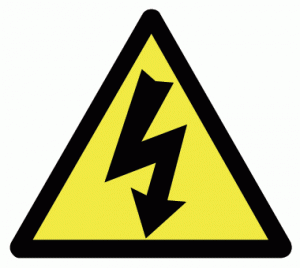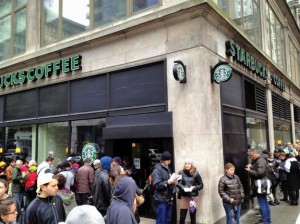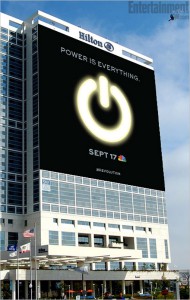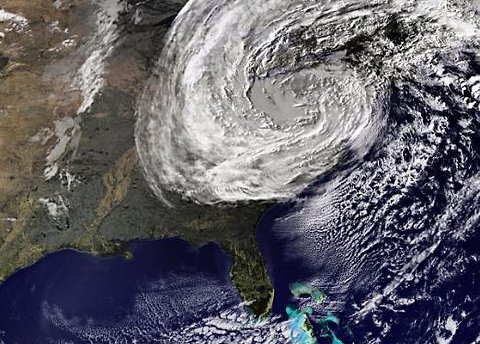For all the pandemonium Sandy spewed on New York and Jersey, there was one meme that spread as far as the arms of the spiral itself, and it was this: nature’s power to stop “free” markets, and even social media, offered many a much needed, if utterly unanticipated, respite from the grind… at least for a day or three.
 This storm was the ultimate eye opener, especially for Millennials too young to exploit social media for less recent catastrophes. Here was an event to Tweet and Facebook and Instagram about, and thousands were physically unable to do so cause the big plug had been yanked. Did anyone think it would take five days for The City That Never Sleeps to restore power to every one below 34th?
This storm was the ultimate eye opener, especially for Millennials too young to exploit social media for less recent catastrophes. Here was an event to Tweet and Facebook and Instagram about, and thousands were physically unable to do so cause the big plug had been yanked. Did anyone think it would take five days for The City That Never Sleeps to restore power to every one below 34th?
 Gen Xer’s were fortunate enough to have their disasters happen in pre-Facebook and Twitter days. 9/11 was not a social media event, thank god. But this isn’t a social media bash. It’s an attempt at seeing a silver lining in the swirling maelstrom.
Gen Xer’s were fortunate enough to have their disasters happen in pre-Facebook and Twitter days. 9/11 was not a social media event, thank god. But this isn’t a social media bash. It’s an attempt at seeing a silver lining in the swirling maelstrom.
We traipse around oblivious to how electrified are lives are. But when entire neighborhoods go black, the illusion of the greatest city on earth snaps into immediate, perhaps nightmarish awareness. No fridge, no phone, no internet, and no cable is one thing. But for thousands, zero telecommunications infrastructure never really crossed their minds as a possibility.
 Cell phone batteries quickly faded searching for non-existent tower signals. And that was the last link anyone had to a normative existence. A smart phone can run a business sufficiently when it’s working. But try doing that piggy backing a wifi-signal from the pavement outside a Starbucks you can get into cause it’s too jam packed, or lining up at a payphone with a pocket full of quarters, which happened every where there was one to be found. It was like a dose of what the breadlines must have felt like in communist Russia.
Cell phone batteries quickly faded searching for non-existent tower signals. And that was the last link anyone had to a normative existence. A smart phone can run a business sufficiently when it’s working. But try doing that piggy backing a wifi-signal from the pavement outside a Starbucks you can get into cause it’s too jam packed, or lining up at a payphone with a pocket full of quarters, which happened every where there was one to be found. It was like a dose of what the breadlines must have felt like in communist Russia.
Without any way to dial out, plug in, or interconnect, it’s obvious that one will feel isolated. But I’d argue that’s not all bad… at least for a stint. In the bloated monstrosity that “connectivity” has become, the occasional helping of forced isolation can swing from unpleasant to nearly euphoric with a simply change of perspective.
 Imagine a full week where you can’t be reached on any device. You don’t have to lie or hide or find some remote location where you’re off the grid, because shit simply doesn’t work, and everyone accepts it. So you don’t have to update, or check in, or reply to every mostly irrelevant communiqué you’re normally inundated with. It’s laughable how quickly all those urgencies because totally irrelevant, isn’t it? And what exactly was it that you ended up missing? There would only be one option left at that point, and that would be to process life’s minutes and seconds for what they were in the moment, instead of repurposing them for how they fit into your virtual meta-narrative.
Imagine a full week where you can’t be reached on any device. You don’t have to lie or hide or find some remote location where you’re off the grid, because shit simply doesn’t work, and everyone accepts it. So you don’t have to update, or check in, or reply to every mostly irrelevant communiqué you’re normally inundated with. It’s laughable how quickly all those urgencies because totally irrelevant, isn’t it? And what exactly was it that you ended up missing? There would only be one option left at that point, and that would be to process life’s minutes and seconds for what they were in the moment, instead of repurposing them for how they fit into your virtual meta-narrative.
Which is what exactly? It’s harder than ever to pin it down today. Life has become more meta-phoric than ever. And events like Sandy remind us just how fragile the metaphor has become. And we’ve all gone so “meta”, so quickly, that we haven’t quite begun to process the multitude of side-effects.

We’re represented by so many virtual entities– whether it’s a social media profile, or a video game avatar, or an online storefront instead of a physical one– that it takes an angry bitch like Sandy to tangle those cords around our necks in an effort to remind us how unreal it all is.
Only by paralyzing the network can we take account of what the metaphor has become. We’re too embedded, otherwise, and there simply is no break from it. There’s always something new to promote, or follow, or sell, to stop and smell the rainwater.
Cliché, I know, but holy shit is it true. We can all sit around and marvel at how the world is changing, but how many of us forget to include ourselves in the equation? How much has all of this technological hegemony changing us?
 Social media and “smart” everything is only a few years old. Having it fail during a crisis in which we’d love to have it most is great training in reminding us just how gossamer thin it all is. All that time spent perfecting our meta-narratives is gone without a trace. If we’d spent that much effort constructing something physical, a hurricane still might blow it away, but there would at least be a foundation on which to rebuild.
Social media and “smart” everything is only a few years old. Having it fail during a crisis in which we’d love to have it most is great training in reminding us just how gossamer thin it all is. All that time spent perfecting our meta-narratives is gone without a trace. If we’d spent that much effort constructing something physical, a hurricane still might blow it away, but there would at least be a foundation on which to rebuild.
What if Facebook never came back? Would we remember how to keep in touch? Or we we realize that no one really has more than a few good friends they actually want to share their victories and defeats with?

It’s too bad JJ Abrams new tv show Revolution devolved so quickly into kitchen sink melo-dreck, because the premise is something we need to explore, and frankly, prepare for.
During Sandy, and after, there were a bunch of friends and some family I couldn’t text or call or email. I just had to pray for them, and hope they were okay. And when they finally surfaced, and I heard the sound of their voices, a deep wave of appreciation was felt that would never have been the same if they had been updating et al, ad nauseum.
It’s the LACK, the period of disconnect, that precious, delicate, void that is more and more rare these days. And more and more powerful.
Someone should make an app for that.




Permalink
Really good post!